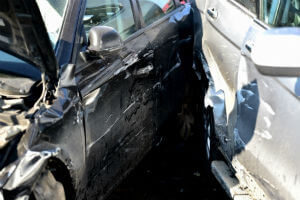If you suffered a serious injury during your service in the U.S. Armed Forces, you have probably heard that you might be eligible for veterans’ disability benefits. In fact, you may have already applied for benefits.
Regardless of where you are in the process, or if you have yet to apply, you probably have many questions about veterans’ disability compensation. Below, the Nye Law Group’s Savannah veterans’ disability lawyers answer some of the most frequently asked questions on this topic.
WHAT ARE VETERANS’ DISABILITY BENEFITS?
Disability benefits provide financial support to veterans who have disabilities caused by injuries that occurred or were aggravated by their military service. Benefits are tax-free and distributed monthly for veterans and their dependents.
The amount and types of benefits you receive are determined by the severity of your disability and whether you have dependents.
DO I QUALIFY FOR VETERANS’ DISABILITY BENEFITS?
The U.S. Department of Veterans Affairs (VA) awards disability compensation to veterans who meet three qualifications:
- They received an honorable discharge from the branch of the military where they served.
- They have a disability, disease or other medical condition.
- Their medical issue is directly connected to something that occurred during their service in the military, such as combat, an accident, poor medical care or a variety of other things.
In some cases, it is relatively easy to prove that your injury is directly connected to your service. For instance, it should not be too hard to establish that your paralysis is the result of a back injury sustained in combat. This is known as a direct service connection.
There are four more ways to establish a service connection so you can qualify for disability benefits:
PRESUMED SERVICE CONNECTION
The VA will automatically assume there is a service connection if you have certain disabilities. For instance, the VA presumes a service connection for prisoners of war who have a stroke, heart disease and psychosis, among many other conditions.
PREEXISTING INJURY AGGRAVATED BY SERVICE
If you had a medical condition listed on your initial medical exam when you enlisted, you should be able to recover compensation if the injury was aggravated during your service and you have proof of an incident that caused the aggravation.
SECONDARY SERVICE CONNECTION
This is for disabilities caused by another disability you have already proven to be connected to your service. You do not need to establish a service connection for secondary disabilities.
POOR HEALTH CARE
If you can prove that your injury was caused by poor health care from the VA, it will likely be deemed service-connected.
HOW DO I APPLY FOR VETERANS’ DISABILITY BENEFITS?
There are three ways to apply for disability compensation:
- Apply online via the eBenefits website
- Print an Application for Disability Compensation and Related Compensation Benefits and mail it to the nearest VA office: US Veterans Affairs Department at 321 Commercial Dr. Savannah, GA 31406
- Go to your regional office and ask an employee for assistance with applying for benefits
You will need the following documentation to complete your application, whether you are applying online, by mail or in person:
- DD214 discharge documents to show the type of discharge you received
- Medical records from your time in the service
- Medical records from any other hospitals or medical facilities where you received treatment for your injury or disability
DO I HAVE TO BE EVALUATED BY THE VA TO RECEIVE BENEFITS?
You must go through a VA medical evaluation unless your primary care provider completes a Disability Benefits Questionnaire (DBQ) that applies to the category of your disability or medical condition.
The VA has more than 70 DBQs for a wide variety of medical conditions, including:
- Infectious diseases
- Amputations
- Knee problems
- Ankle conditions
- Foot conditions
- Hypertension
- Tuberculosis
- Seizure disorders
- Multiple sclerosis
- Parkinson’s disease
The purpose of a DBQ is to document your diagnosis and all related symptoms. These forms have long lists of symptoms and all your primary care provider needs to do is mark the boxes next to the symptoms you are experiencing. There are also a few places where your primary care doctor can explain some of your symptoms in greater detail.
This is a much easier way to document your diagnosis and symptoms, as opposed to providing a long narrative summary in your application for benefits.
The lists of symptoms on these forms use standardized language, which helps the VA make a decision about your application more quickly. These forms were designed to help streamline the process of applying for benefits.
The only downside to using a DBQ is that you are responsible for all co-pays and related costs for visiting the doctor to complete the form.
WHAT IS A DISABILITY RATING?
When you submit your application, the VA will calculate your percentage of disability, also known as your disability rating. You must be at least 10 percent disabled to receive disability benefits.
Your disability rating determines the amount of compensation you receive. The higher your disability rating, the more compensation you receive.
WHAT TYPES OF DISABILITY BENEFITS ARE AVAILABLE?
There are different types of compensation depending on the severity of your disability, including:
DISABILITY COMPENSATION
This is the standard form of compensation paid to veterans and their dependents. You could receive anywhere from $133.57 per month if you have a disability rating of 10 percent to $2,915.55 per month if you are 100 percent disabled.
Rate tables on the VA website show how much you could receive if you have dependents, such as spouses, children and parents. The more dependents you have, the more compensation you could receive.
SPECIAL MONTHLY COMPENSATION
This is only available in special circumstances, such as when the veteran needs assistance from another person to handle activities of daily living due to:
- Paralysis
- Loss of hearing
- Loss of vision
- Loss of use of a foot or hand
Compensation is available for spouses, surviving spouses and parents.
Disabilities are divided into different groups to determine the amount of compensation received. For instance, a veteran who lost the use of an eye would receive $103.54, in addition to his or her regular disability compensation.
DEPENDENCY AND INDEMNITY COMPENSATION
This form of compensation is for spouses, biological children and biological, adoptive or foster parents.
The general rate for spouses is $1,257.95 per month, while the rate for parents is dependent on their marital status. For example, parents who are still married could receive anywhere between $5 and $423 per month.
WHEN WILL I RECEIVE BENEFITS?
The VA disability program is currently backlogged. Most veterans experience a wait of about one year before receiving a decision on their application.
Filing an appeal may add another eight to 12 months to the process. However, if your appeal is unsuccessful and you file another one, you could wait several more months for a final decision.
CAN I WORK WHILE RECEIVING BENEFITS?
Veterans may work while receiving disability benefits. However, if the VA rates your disability at 100 percent and you continue working, the VA may lower your rating. This is because the VA considers those with 100 percent disability ratings to be unemployable.
CAN I RECEIVE VETERANS’ DISABILITY BENEFITS AND SOCIAL SECURITY DISABILITY AT THE SAME TIME?
If you qualify for both programs, you can receive benefits from each one at the same time. Eligibility for one program does not affect eligibility for another or the amount of compensation you will receive.
HOW DO I APPEAL IF MY CLAIM WAS DENIED?
Fortunately, you can appeal a denied application for any reason. The first step to appeal a denied claim is to file a Notice of Disagreement with the VA within one year of receiving a denial notice.
After reviewing your notice, the Veterans Benefits Administration (VBA) will send you a Statement of Case summarizing the evidence in your case and the reasons why the original decision was upheld or reversed.
If the original decision is upheld, you can file a Substantive Appeal with the VBA within 60 days of receiving the Statement of Case. If you are denied again, you have four options:
- File a motion requesting that the VBA reconsider your case
- File a motion requesting a VBA review due to a clear and obvious error in the denial of your claim
- File a claim with the Court of Appeals for Veterans Claims within 120 days of the VBA’s last decision.
DO I NEED A VETERANS’ DISABILITY LAWYER?
The Nye Law Group’s Savannah injury attorneys have in-depth knowledge of the process of applying for veterans’ disability compensation. We can guide you every step of the way, from your initial application to any appeals.
We know how to collect the information you need to build a strong case for why you should receive compensation.
We do not charge for your initial consultation and do not recover legal fees unless you receive compensation.
Contact The Nye Law Group right now for a free legal consultation.




